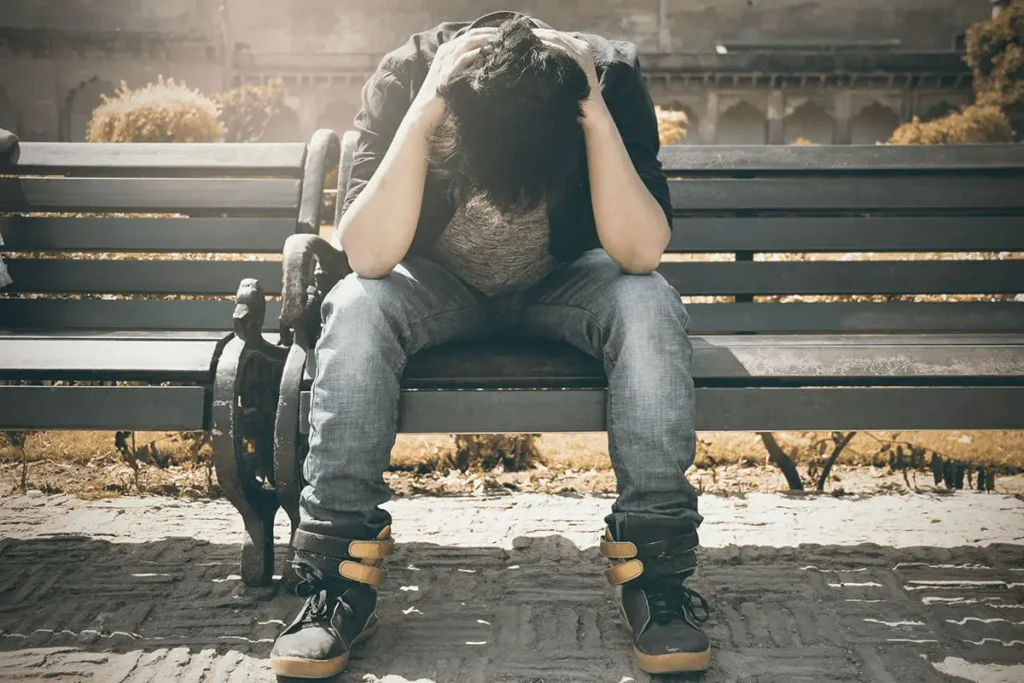Think of your mind as the part of you that helps you navigate life. This is why mental health matters! To work its best, it needs proper care and regular check-ins. You may often focus on things like exercise or eating well, but how much time do you spend making sure your mental health is okay?
Good mental health is important for living a healthy and balanced life. Your mental health affects you overall, including your decision-making, how you cope with stress and how you relate to others. It affects the way you think, feel, and behave. When you take care of your mental health, you think more clearly, feel happier, in control, and can enjoy life.
There’s no historical playbook for the era we’re living in. With endless digital distractions, social media pressures, and life’s fast pace, our minds are taking on more than they can handle. Think about it: your great-grandparents never had to worry about email anxiety or doom-scrolling through news feeds at 3 AM. That’s why understanding why mental health matters and how to protect your mental health isn’t just important; it’s crucial for survival and thriving in the 21st century.
The Difference Between Mental Health and Mental Illness
Here’s where things get interesting, and often confusing…
Mental health is your mind’s everyday condition, like your baseline energy that affects the way you think, feel, and navigate life’s challenges.
The World Health Organization describes it beautifully as “a state of well-being in which the individual realizes his or her abilities, can cope with the normal stresses of life, can work productively and fruitfully, and can contribute to his or her community.
Mental illness, however, is a specific condition that disrupts the baseline that is your mental health. This might include conditions like anxiety, depression, bipolar disorder or other diagnosable conditions that also affect your thoughts, the way you feel, and your behaviors.
To learn even more, head over to this article: Mental Health vs Illness: What You Need to Know and How to Get Help
The Importance of Good Mental Health
Did you know that approximately 44 million Americans (that’s one in five adults) experience mental illness each year? That’s more than the entire population of California! Yet despite how huge these numbers are, mental health stigma continues to hold back countless people from seeking the help they need.
Most of the common mental health problems reported include anxiety, depression and bipolar disorders, schizophrenia, eating disorders, and dementia.
Depression alone is the number one cause of disability worldwide, affecting individuals and their families mentally, socially, physically, and financially. Mental illness can affect anyone, despite their age, race, culture, or sexual orientation. It does not discriminate!
Signs of Good Mental Health
You probably have good mental health if:
- You feel confident when you’re faced with new challenges or people
- You do not blame yourself all the time
- You set goals and work towards them
- You have a sense of belonging
- You have healthy self-focus and feel good about yourself
- You feel optimistic and more resilient
- You have good self-esteem
- You have healthy relationships
Keeping your mental health in check is important because it affects everything in your life. That’s why mental health matters; when you have poor mental health, it can stop you from being happy or achieving your goals and living your best life overall.
Benefits of Good Mental Health
Good mental health is important because it can help you to:
- Improve your mood
- Cope with the stress in your life
- Be able to think clearer
- Take better care of your physical health
- Have good relationships
- Have less anxiety
- Increase self-esteem
- Reduce the risk of developing depression
- Work productively
- Experience increased feelings of calmness
Poor Mental Health
When you neglect to take care of your mental health, you may experience being in a state of poor mental health in which areas of your life are negatively affected.
Your upbringing, life experiences, environment, and genes are factors that can affect your mental health. Stress, anxiety, and depression can affect a person’s mental health and their ability to take care of themselves and those who depend on them.
How do you know that you have poor mental health or a mental illness? Here is a list of symptoms and warning signs of a potential mental health problem or mental illness…
Signs of Poor Mental Health
- A decrease in energy or sleeping problems
- Confused thinking or poor concentration
- Mood changes of extreme highs and lows
- Avoiding or lack of interest in socializing or activities
- Detachment from reality (delusions), paranoia, or hallucinations
- Inability to cope with usual daily activities and stress
- Problems with understanding and relating to people
- Drug and alcohol abuse that intensifies and worsens conditions
- Major changes with eating
- Finding it hard to make decisions
- Excessive feelings of anger, hatred, or violence
- Changes in sex drive
- Being easily overwhelmed
- Suicidal thinking
Sometimes physical problems such as back pain, headaches, stomach pains, or other unexplained aches and pains can be symptoms of a mental health problem.
If you or someone you know is experiencing any of these symptoms and need immediate help, please reach out for help.
Complications Linked to Poor Mental Health
Just like not taking care of your body may lead to destructive patterns, for example, binge eating that can lead to weight gain, neglecting to take care of mental health can lead to severe emotional, behavioral, and physical health complications, such as:
- Alcohol and drug abuse
- Conflicts with family
- A weakened immune system
- Problems financially and legally
- Unhappiness and decreased enjoyment of life
- Poverty and homelessness
- Relationship problems
- Isolation from socializing
- Problems at school or work or poor attendance
- Self-harm and harming others, including suicide and homicide
- Heart disease, high blood pressure, and other medical problems
Why Mental Health Is as Important as Physical Health
We know that exercise is important for our physical health, but it is also important for our mental health.
To be able to care for your physical health and, in turn, your mental health, you don’t need to take hours out of your day to hit the gym. There are other things you can do, whether it may be with a brisk walk or a session of moderate exercise daily, you will be able to experience the mental health benefits that can be achieved through physical fitness.
Mental Health Benefits Through Physical Fitness
- Increased energy. The more you raise your heart rate through exercise, the more mitochondria the body makes to produce more energy
- Sharper memory and clearer thinking can be achieved when the same endorphins responsible for improving moods are also released during exercise
- Stimulates the growth of new brain cells through a process called neurogenesis that improves overall brain performance
- Stronger resilience. Exercise helps you to cope healthily instead of turning to substances like alcohol that will only worsen your state of mental health
- Higher self-esteem. Losing weight and toning muscle will have you feeling good because you look good
- Reduces anxiety, depression, and stress as endorphins and neurohormones like norepinephrine are released in the brain during exercise
- Better sleep. Exercising in the morning or afternoon can help regulate your sleep patterns
Caring for Your Mental Health
You may be facing challenges with your personal life and relationships, with your health, financially or you may be trying to overcome a traumatic experience. We all have our challenges and some of us are more deeply affected than others.
There is no single ‘right way’ to react to the challenges we face as we all react differently from one another. It may seem difficult to maintain a state of good mental health while going through these challenges, but it is important to do so.
Maintaining good mental health can help you to live and enjoy life and everything around it. The environment you live in, the people you have in your life, and activities can be enjoyed when you are in a good state of mental health. It allows you to work productively and cope with the stresses you may deal with in everyday life.
If you want to have good mental health, you need to care for and maintain it. There are several things you can do to take care of your mental health:
Ways to Care for Your Mental Health
To keep your mental health in check, you need to pay attention to it and find different ways to help depending on what you’re going through.
Here’s your comprehensive toolkit:
- Movement as Medicine
- Find physical activities that bring you joy, not just calories burned
- Aim for consistency over intensity
- Mix up your routine to keep both your body and mind active
- Use exercise as a form of moving meditation
- The Power of Connection
- Build in meaningful relationships with people who lift you up
- Practice vulnerability with trusted friends or family members
- Join communities aligned with your interests and values
- Remember that true friendship isn’t about numbers, it’s about trust and support
- Mindful Nourishment
- Feed your brain with nutrient-rich foods
- Stay hydrated – your brain is about 75% water
- Consider the emotional aspect of eating
- Practice mindful eating habits
- Sleep Hygiene
- Establish a consistent sleep schedule
- Create a relaxing bedtime routine
- Limit screen time before bed
- Make your bedroom a sanctuary for rest
- Stress Management
- Learn and practice different breathing techniques
- Try meditation or mindfulness exercises
- Develop healthy coping mechanisms
- Set realistic expectations and boundaries
- Professional Support
- Recognize when you need expert help
- View therapy as a tool for growth, not a last resort
- Research different therapeutic approaches
- Consider regular mental health check-ups
The Investment That Keeps Giving
Mental health care is the most important investment you’ll ever make. When you nurture your mental health, you’re not just improving your own life; you’re positively impacting everyone around you.
Better mental health leads to:
- More fulfilling relationships
- Increased productivity and creativity
- Greater resilience in facing life’s challenges
- Improved physical health
- Enhanced decision-making abilities
- A more positive outlook on life
- Stronger sense of purpose and meaning
Remember, maintaining good mental health isn’t about achieving perfection; it’s about progress, understanding, and continuous growth. Some days will be harder than others, and that’s perfectly normal. The goal isn’t to get rid of all bad feelings or tough times, but to get better at dealing with them effectively when they come.
Why Mental Health Matters for Your Journey Ahead
Your mental health journey is uniquely yours, but you’re not alone in navigating it. Whether you’re new to focusing on your mental health or have been doing it for a while, every small step you take counts towards making things better. Start where you are, use what you have, and do what you can. Your mind will thank you for it!
What’s one small step you’ll take to improve your mental health this week? Tell us below.
References
- Mental Health By the Numbers – NAMI
- Mental illness – Symptoms and causes – Mayo Clinic
- How to look after your mental health – Mental Health
- The Benefits of Mental Health According to Science – Positive Psychology
- The Mental Health Benefits of Exercise – Help Guide
Save This Post for Later
Pin this blog post by saving the image below to Pinterest so you can revisit it whenever you want!









